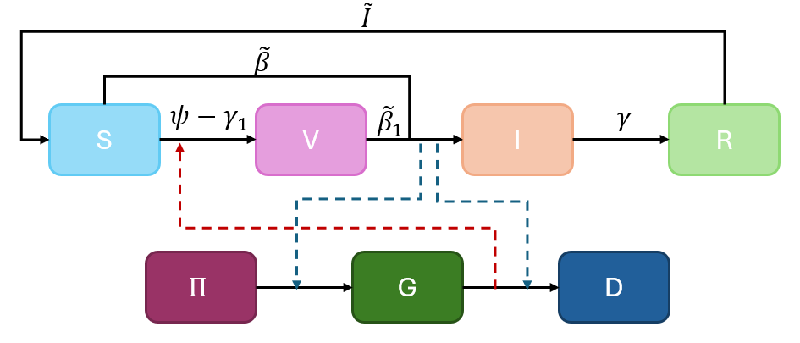Unlocking Effective Pandemic Responses: A New Framework for Vaccine Allocation

In an era defined by the global COVID-19 pandemic, innovative approaches to resource allocation have become critical in mitigating the impact of infectious diseases. A recent research paper by Kimiya Jozani and colleagues introduces a groundbreaking integrated supply chain framework designed to optimize vaccine distribution while addressing equity concerns during epidemics. This paper highlights the need for a cohesive model that accounts for both the dynamics of disease spread and the logistics of vaccine delivery.
The Challenge of Timely Response
The rapid spread of infectious diseases can lead to overwhelming numbers of infections and deaths, making effective intervention strategies essential. The challenge lies in ensuring that vaccine allocation responds dynamically to the changing circumstances of an epidemic. Traditional methods often fail to consider the complex interplay between disease dynamics and logistical constraints, resulting in disjointed approaches that can hinder public health responses.
Introducing the Integrated Framework
The proposed framework uniquely combines epidemiological modeling with logistical considerations for vaccine supply chains. It introduces a two-fold approach: first, a multi-objective Gini-based model that balances efficiency and equity, and second, a knapsack-based model that prioritizes vaccines for regions identified as vulnerable. This dual methodology allows for data-driven decision-making that supports regional needs and variances, enhancing the effectiveness of vaccine distribution.
Groundbreaking Results
Utilizing data from all 50 U.S. states, the researchers validated their model's effectiveness. The results reveal a potential to prevent over 2 million infections and save approximately 30,000 lives in just six months if the proposed strategies were implemented during the initial phases of the pandemic. This underscores the potential of a well-integrated and equitable resource allocation strategy to significantly improve public health outcomes.
Equity in Vaccine Distribution
One of the most compelling aspects of this research is its focus on equitable vaccine allocation. The framework ensures that high-risk populations receive prioritized access to vaccines, which not only improves fairness but also enhances overall efficiency. This is crucial in combating health disparities that disproportionately affect vulnerable communities—an issue that the COVID-19 pandemic has starkly highlighted.
Policy Implications and Future Directions
By providing policymakers with a robust tool for epidemic preparedness, this research paves the way for more adaptable and responsive healthcare strategies. As the world navigates emerging health crises, the need for integrated operational models grows increasingly urgent. Future applications of this framework could extend beyond COVID-19, offering insights for managing a variety of epidemic responses effectively.
In summary, this novel integrated supply chain framework is not just a technical advancement; it represents a paradigm shift in how we approach public health and epidemic management. The innovations encapsulated in this research have the potential to redefine vaccine distribution strategies, emphasizing the pivotal importance of aligning logistic efficiency with public health goals.
Authors: Kimiya Jozani, Nihal A. Sageer, Hode Eldardiry, Sait Tunc, Esra Buyuktahtakin Toy